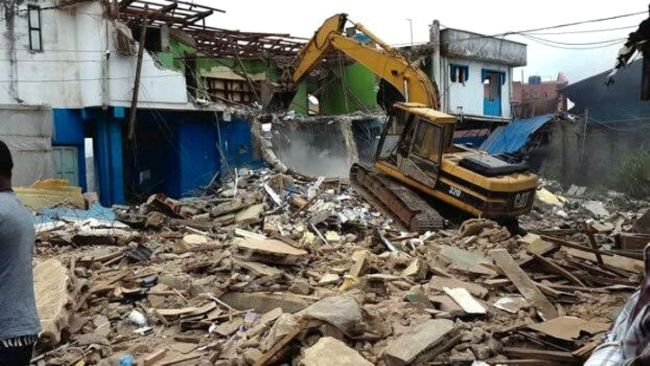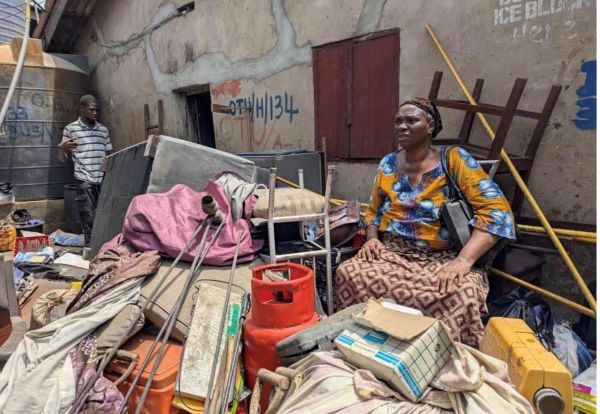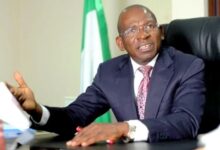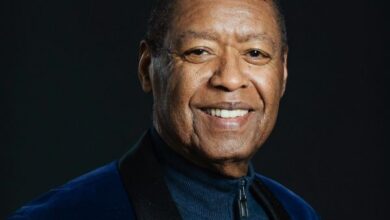
The air in Oworonshoki, a densely populated Lagos suburb linking the Mainland and Island via the iconic Third Mainland Bridge, is heavy — not just with dust from bulldozers, but with despair, disbelief, and disillusionment.
Barely days after a Lagos High Court restrained further demolitions in the area, bulldozers rolled into Ajileru, Ososa Extension, and Toluwalase Streets, tearing through over 70 homes and displacing hundreds of families.
The demolition, which eyewitnesses said began under the cover of darkness around 1 a.m., flattened what many residents had called home for decades — despite a subsisting injunction by Justice A.G. Balogun in Suit No. ID/9910GCM/2025.
A Legal Injunction Ignored
On October 23, 2025, Justice Balogun issued an interim injunction restraining the Lagos State Government, the Attorney-General, the Commissioner for Physical Planning and Urban Development, and the Lagos State Building Control Agency (LASBCA) from further demolishing or creating third-party interests over properties belonging to the Itesiwaju Ajumoni Community Development Association (CDA).
The order covered approximately 30 hectares of land, and was to remain in force pending compliance with Pre-Action Protocols for Land Matters — ensuring fairness and preventing abuse of legal process.
But instead of compliance, what followed was devastation. Residents woke to the rumble of bulldozers, backed by security operatives, as walls caved in and belongings vanished under rubble.
“Our homes were demolished in the middle of the night without warning. We slept outside in the cold with our children. This is inhumane,” cried Mr. Adewale, a landlord whose property was reduced to debris.
Another resident, Adenike, heavily pregnant, recounted running barefoot into the night as her home collapsed:
“They told us the court had stopped the demolition. But at midnight, they came again with bulldozers. We lost everything — documents, clothes, food. Everything.”

A Clash Between Urban Renewal and Human Rights
The Lagos State Government, through the Lagos State Urban Renewal Agency (LASURA), insists that the Oworonshoki demolition forms part of a five-year regeneration plan designed to replace unsafe structures with modern housing, roads, drainage, and social infrastructure.
According to LASURA’s Director-General, Mr. Oladimeji Animashaun, compensation payments have begun — with 80 beneficiaries reportedly receiving cheques between ₦3 million and ₦5 million each, depending on property type.
“Urban regeneration is about replacing unsafe environments with planned communities. Due process was followed,” Animashaun asserted.
However, this narrative sharply contrasts with the residents’ experience. Many say they received no prior notice, no valuation assessment, and no compensation before their homes were razed — a claim backed by their lawyers, who accuse state agencies of contempt of court.
“The demolition constitutes a flagrant disregard for judicial authority. We are filing formal contempt proceedings,” one of the community’s counsel told BRANDECONOMY.
Midnight Operations and Alleged Intimidation
Eyewitnesses allege that the demolition teams operated under heavy security escort, with several residents reporting tear gas deployment and harassment.
Videos circulating online show armed officers and task force vans, while frightened residents fled into the night.
A visibly injured man, his face bloodied, lamented:
“They beat us, threw stones and tear gas. Look at what they did to me. I’m a citizen of Nigeria — from Lagos State!”
However, the Lagos Police Command has denied allegations of brutality in the Oworonshoki demolitions.
Police spokesperson SP Abimbola Adebisi dismissed the reports as “false and malicious,” insisting officers were deployed merely to maintain order.
“At no time did any officer engage in violence or harassment. Our presence was to prevent lawlessness and ensure peace,” she said, urging the public to disregard “baseless” social media claims.
Still, the emotional toll on residents remains severe. Families with infants and the elderly now live in makeshift shelters, surrounded by the skeletal remains of what once symbolized stability and belonging.
The Land Dispute and the Question of Justice
The 30-hectare land in question has been disputed for years, allegedly attracting interest from private developers and state-linked investors.
Oworonshoki Community leaders argue that the demolitions — despite court orders — suggest commercial motivations disguised as urban renewal.
“We are not against development,” said a CDA representative. “But you don’t destroy people’s homes before the court decides ownership. This is injustice and contempt for due process.”
Legal experts have also voiced concern over the precedent such actions set, noting that court injunctions are not advisory opinions but binding orders.
To disregard them undermines the rule of law, erodes public trust, and threatens property rights protection — key pillars of Lagos’ investment appeal.
Government’s Defence: Regeneration or Rights Violation?
The Lagos State Urban Renewal Agency (LASURA) maintains that regeneration of Oworonshoki will ultimately improve safety and urban liveability.
Officials argue that the area had long been marked as unsafe and flood-prone, and that redevelopment will yield better drainage, road access, and modern housing.
“This is not demolition for its own sake,” said Hon. Okanlawon Sanni, representing Kosofe Constituency I at the Lagos State House of Assembly.
“It is about development with dignity. No one will suffer unjustly.”
However, observers note that the communication gap, lack of transparency, and disregard for court processes have overshadowed the government’s urban renewal intentions.
For many Lagosians, the demolitions highlight a recurring tension between developmental ambition and human dignity.
Lives in Rubble: The Human Cost
Across the affected streets, scenes of displacement and despair dominate.
Children clutching school bags salvaged from ruins; women crying over shattered walls; men standing over wrecked foundations that once represented years of sacrifice.
For these residents, the issue transcends legality — it is about identity, survival, and belonging.
“We built our homes lawfully,” said one community elder. “All we ask is fairness and respect for the court. We are not squatters; we are citizens.”
Human rights advocates have urged the Federal Government, civil society groups, and international partners to intervene — not merely to address compensation, but to reaffirm the sanctity of human rights and judicial authority in Nigeria’s governance.
BRANDECONOMY INSIGHT: Balancing Development with Dignity
Oworonshoki’s demolition saga exposes a broader dilemma confronting Lagos and other megacities: how to pursue modernization without dehumanization.
Urban regeneration is essential — but it must be anchored on empathy, legality, and inclusion.
Ignoring court orders in the name of progress undermines governance credibility and weakens investor confidence.
Development must never be achieved at the expense of justice.
As BRANDECONOMY’s Property & Environment Desk observes, true urban renewal builds communities, not casualties.










